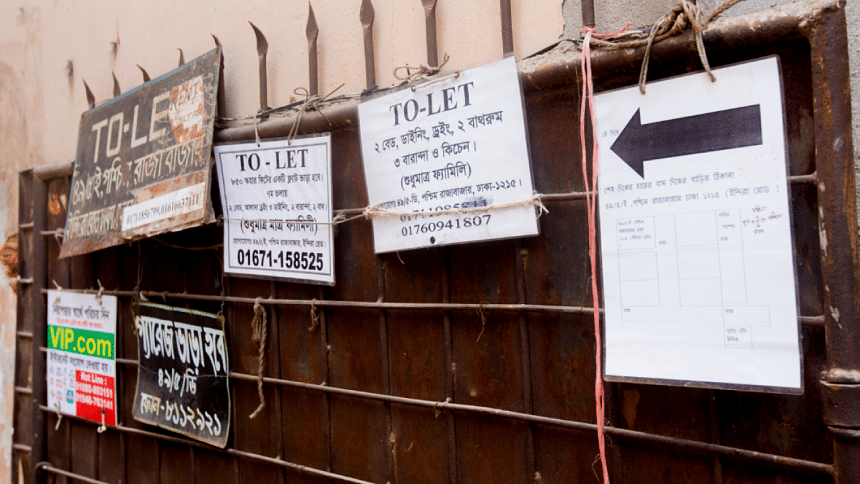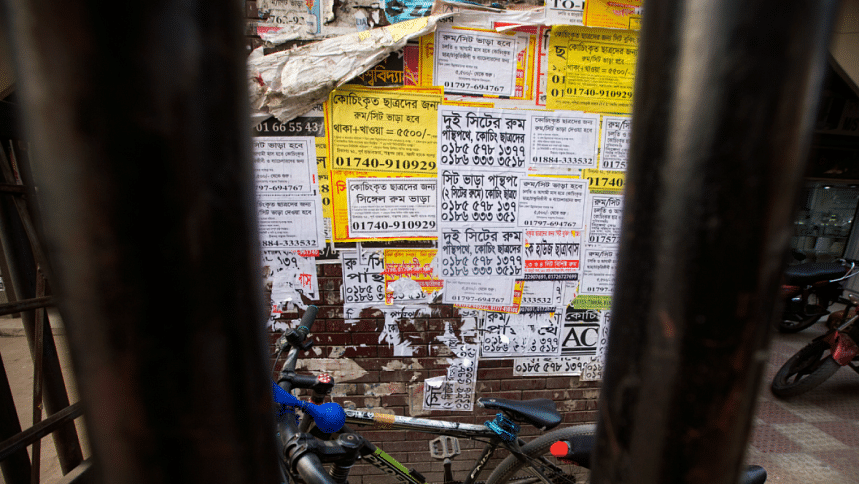Moving out for the first time

Leaving behind your childhood home or the place where you spent most of your life is a common reality for many. This is especially true for those living in small towns, as often the only option for pursuing your higher education or a lucrative career is to move to a bigger district with more educational institutes and job opportunities.
Dhaka is usually the common denominator when talking about places where such students and wage earners come to find said opportunities — and with more and more institutions and offices reopening, a significant number of young people will be returning to Dhaka, or whichever district their institution or office is located.
Many of us romanticise this notion of moving out and living by ourselves. Western ideologies and popular media parades the narrative that moving out is one of the many character-building arcs in our lives. For many, it feels like a natural step into independence and freedom they have never had before, almost like a coming-of-age sequence in a movie.
However, this reality in the context of Bangladesh can be quite different.
Talking with your family
Possibly the greatest roadblock to moving it out is convincing one's parents. Irrespective of whether you're doing it for education or because you were offered your dream job in another district, getting your parents on board can be quite an ordeal.
The level of difficulty varies depending on factors such as your age, gender, perceived level of maturity, etc. A good way to get your parents on board is to show that you're a responsible adult who can be accountable for themselves on a day-to-day basis.
One of the writers has first-hand experience of this. They made a list of pros and cons for their parents, with detailed research about the private university they wished to join. This gave the impression that they were serious enough about the move, which ultimately played a big role in convincing their parents.
Another fail-safe way to help convince your family is to either move in with or in close vicinity to a relative or a family friend who can be there for you in case of emergencies. Having a guardian figure can help convince your parents that letting you move out isn't the worst idea under the sun.

Feelings on moving out
Once you have your family on board, the worst seems to be over with. At this stage, the struggles are going to be internal, at least for now. While things differ from person to person, it is very natural to feel emotions ranging from fear to confusion to excitement all at once.
Iftekhar Hasan Rahat, who moved from Chattogram to Dhaka for a job at a marketing agency, shared his personal experience.
"The hardest part of moving out was definitely the mental thought that you're on your own now. I learned to cook, do dishes, and wash clothes. But the continuous nagging thought at the back of my head that I am on my own from now on is what bothered me the most, and still does at times," he shared.
The homesickness and the feeling that you are completely alone is unavoidable. It lingers with you, and it's alright if you can't quite move past it. From our personal experiences, a version of this remains with you wherever you go. You eventually learn to process it by surrounding yourself with friends and acquaintances who care about you, and people you can trust.
The whole process of living by yourself, without your family, is definitely a new phase in your life which demands more effort and responsibility on your part. You are removed from your comfort zone, and the safety net of having your parents in the next room is no longer there.
Samiha Hussain Wadood, a student at North South University spoke about how she adapted to living alone.
She said, "While living alone is hard, and you have to do way more chores throughout the day, but nothing beats the feeling of independence you get. The fact that I can shop for groceries by myself, without anyone telling me what to get and that I can come home whenever I please, is a freedom that outweighs all the struggles. Everyone should experience living on their own terms and not having to explain themselves to anyone."
Choosing where to live
An important thing to consider when choosing accommodations in a new city is to make sure one chooses the right area to live in. It can be hard for bachelors and bachelorettes to find accommodations easily, whether in university or working full time.
Rifat Rahman*, who moved to Dhaka from Dinajpur, emphasised, "Finding a house is always difficult for an unmarried person. Then there is the issue with finding a good community and neighbourhood to settle in. You cannot just adjust to a new place right away."
This particular issue can be much more sensitive for unmarried women. The worries regarding personal safety is heightened, and most of the time this is exactly what deters women from trying to live independently.
Women's accommodations — hostels, halls, apartment housings — almost always have a curfew. Sometimes, excessive regulations are imposed, making it impossible to have a life beyond working hours. You will either have to settle with a girls' hostel and the ludicrous regulations that come with it, or move in with a relative and live according to their own set of rules and regulations.
For women, renting a place with other women you are comfortable with is possibly the best option, if that is an option.
Finally, it's important to ensure that the locality you have chosen for yourself has all the necessary facilities such as grocery shops, laundries, affordable restaurants, ATMs, etc. so that you do not have to frequently travel out of the neighbourhood.
Tracking your finances
Once you've made it past the hurdles of convincing your family, selecting your neighbourhood and having set your mind on the process of moving out and into your own place, it's time to look at one final checklist.
This should ideally be composed of elements that you must keep track of, as many people get to this stage and believe a lot of the hard work is done. Make sure to plan out your finances meticulously for the month; from how much money you will receive from your parents, if at all, or your monthly salary, and how much you will be spending every month.
Ideally, you should separate your budget into four major sections which are listed in order of priority: rent and bills, groceries and essentials, travelling expenses, and recreational expenses.
If you've made it this far, jumping through the proverbial hoops in the process, then congratulations.
The last piece of advice we have left to give is that with classes, work, housekeeping, and daily chores, it is okay if things get difficult and overwhelm you from time to time. That is one of the many parts of being an adult, but it becomes a little easier over time (at least that's what they keep telling us). But if there's one thing that proved true for us, it's that the experience of living alone, on our own terms, has helped us grow even more as individuals.
Take the account of Shaila Alam Urmi, a student of Rajshahi University of Engineering and Technology, who moved out of Dhaka to pursue her dream of becoming an engineer.
"It's always difficult to move out of your comfort zone and it will always be a challenge. To be honest, I always wanted to live alone. Having the freedom to paint anything on the walls, roaming alone or with friends, becoming independent, making my own decisions are all things that give me a thrill. The challenges exist as well, but things get easier with time, and what seemed like a challenge at the beginning, are now excellent life lessons for me," said Urmi.
*Name has been changed for privacy

 For all latest news, follow The Daily Star's Google News channel.
For all latest news, follow The Daily Star's Google News channel. 








Comments